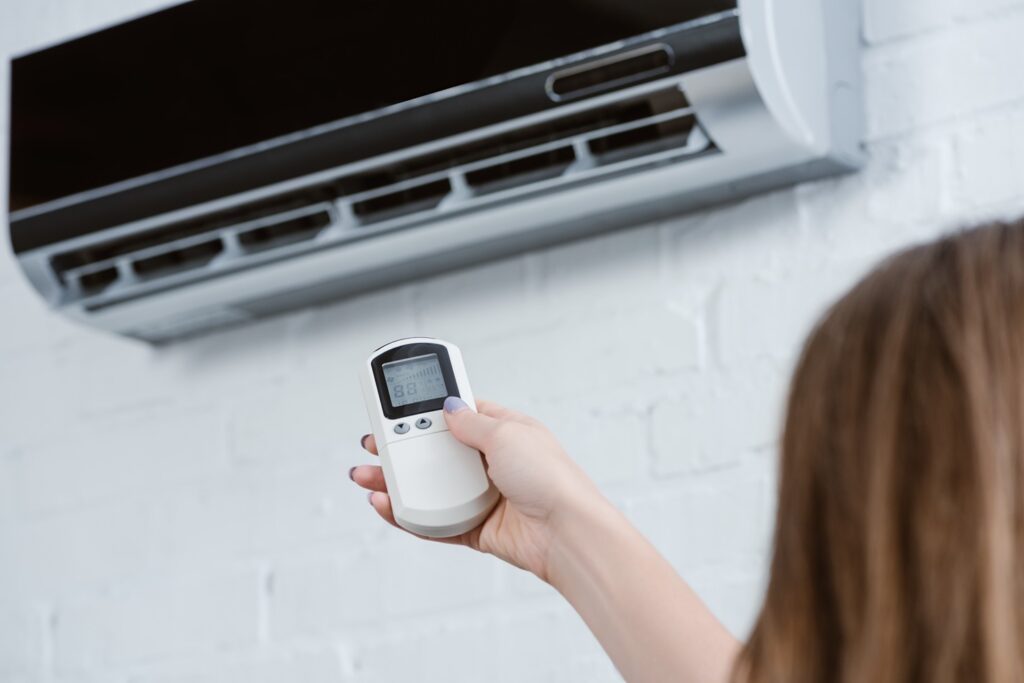An air conditioning system blowing warm air is frustrating, especially during hot days. Various issues can cause this problem, ranging from simple fixes to complex repairs. Understanding the common reasons behind warm air can help you address them promptly and restore your home’s comfort.
Common Reasons Why Your AC Is Blowing Warm Air
Understanding why your air conditioning system is blowing warm air is essential for identifying the right solution. One common cause is a dirty air filter. When filters are clogged with dust and debris, airflow is restricted, and the AC struggles to cool your home efficiently. Replacing or cleaning the air filter can often resolve this issue quickly.
Another frequent culprit is low refrigerant levels. Refrigerant is vital for cooling the air within your AC system. If there is a leak or the refrigerant level is too low, the system cannot cool the air properly, leading to warm air blowing from the vents. Detecting and fixing refrigerant leaks usually requires professional help to ensure proper handling of the chemicals.
Thermostat issues can also cause your AC to blow warm air. Incorrect settings or thermostat malfunctions can make it difficult for your AC to maintain the desired temperature. Ensure the thermostat is set to “cool” mode and the temperature is appropriately adjusted. If the problem persists, there may be an issue with the thermostat itself or its connection to the AC system.
Sometimes, outside condensing units may become blocked by debris such as leaves, dirt, or ice. A blocked or dirty condenser can impede heat transfer, causing the system to produce warm air. Cleaning the condenser unit and ensuring it’s free from obstructions can help restore proper function.
DIY Steps for Troubleshooting and Fixing Warm Air Issues
Identifying and addressing some common issues with your air conditioning system can be done with a few DIY steps. Start by checking the air filter. Locate the filter compartment, remove the dirty filter, and either clean or replace it with a new one. A clean air filter can significantly improve airflow and cooling performance.
Next, inspect the thermostat settings. Ensure it is set to “cool” mode and the temperature is lower than the current room temperature. If necessary, recalibrate or replace the thermostat batteries. Confirm that the thermostat is functioning correctly and not influencing the AC’s performance.
Check the outdoor condenser unit for debris or obstructions. Turn off the power to the unit before cleaning. Use a garden hose to gently rinse dirt and debris from the condenser coils. Make sure there’s at least two feet of clearance around the unit for proper airflow. Removing any blockages can help restore the system’s cooling ability.
Another step involves checking the circuit breaker. Sometimes, the circuit breaker for the AC unit may trip, cutting off power to the system. Locate your home’s electrical panel, find the breaker switch labeled for the AC, and ensure it’s in the “on” position. Resetting a tripped breaker can restore function and resolve warm air issues.
Lastly, inspect the evaporator coil and drain line. Turn off the AC system and open the access panel to check if the coil is frozen or dirty. A frozen coil usually indicates low refrigerant levels or restricted airflow, and a dirty coil can hinder performance. Cleaning the coil and ensuring the drain line is clear can often improve your AC’s cooling efficiency. If these steps do not resolve the issue, it may be time to seek professional assistance.
When to Call Our Professionals for AC Repairs
While addressing minor issues with your air conditioning system can often be done through DIY steps, certain situations require the expertise of our professionals. One significant indicator is a persistent problem. When your AC continues to blow warm air despite performing basic troubleshooting, it’s time to call in our technicians. This may indicate an underlying issue that needs specialized equipment and knowledge to diagnose and fix.
Additionally, if you notice unusual sounds coming from your AC unit, such as grinding, squealing, or banging, don’t hesitate to contact us. These noises often signal mechanical problems or component failures that should be handled by a professional to prevent further damage.
Another crucial sign to watch for is frequent cycling. If your AC is constantly turning on and off without effectively cooling your home, it could be due to a malfunctioning thermostat, compressor issues, or electrical problems. These are complex issues that require expert attention.
Leaks around your AC unit are another red flag, especially if the liquid appears to be refrigerant. Handling refrigerants improperly can be dangerous, and the system may need to be recharged or repaired by our trained technicians. Water pooling around the unit can also lead to mold growth and damage to your home’s structure.
Preventative Maintenance Tips to Keep Your AC Running Cool
Regular maintenance is key to keeping your air conditioning system in peak condition. Start by ensuring your air filter is clean. Check it monthly and replace it every one to three months, depending on usage and the type of filter. A clean filter improves airflow and efficiency.
Keep the outdoor condenser unit free from debris. Trim vegetation around the unit to ensure there is adequate airflow and remove leaves, dirt, or any other blockages that may accumulate on the unit. This helps the system disperse the heat it has absorbed more effectively.
Schedule annual professional maintenance checks. Our technicians can inspect and clean the various components of your system, including the coils, fan, and motor. They can also check refrigerant levels and ensure everything is in proper working order, catching small issues before they turn into major problems.
You should also keep an eye on your thermostat settings. Ensure that it’s calibrated correctly and adjusts to the right temperature. Using a programmable thermostat can help maintain consistent temperatures and reduce strain on your AC.
Conclusion
Maintaining a well-functioning air conditioning system is vital for comfort and efficiency. From understanding common reasons behind warm air issues to performing simple troubleshooting steps, knowing how to manage your AC system can prevent unnecessary discomfort and expenses.
While DIY fixes can resolve minor problems, certain situations call for professional intervention. Persistent issues, unusual noises, frequent cycling, and leaks are signs that it’s time to reach out to our skilled technicians at Standard Heating, Cooling & Plumbing. Regular maintenance, such as cleaning filters and scheduling annual checks, also plays a crucial role in keeping your AC running smoothly.
For expert assistance and reliable AC repair service in Birmingham, AL, contact us. Our team is ready to help you with all your air conditioning needs, ensuring your system runs cool and efficiently. Don’t wait until a small issue becomes a major headache—schedule your appointment today!







